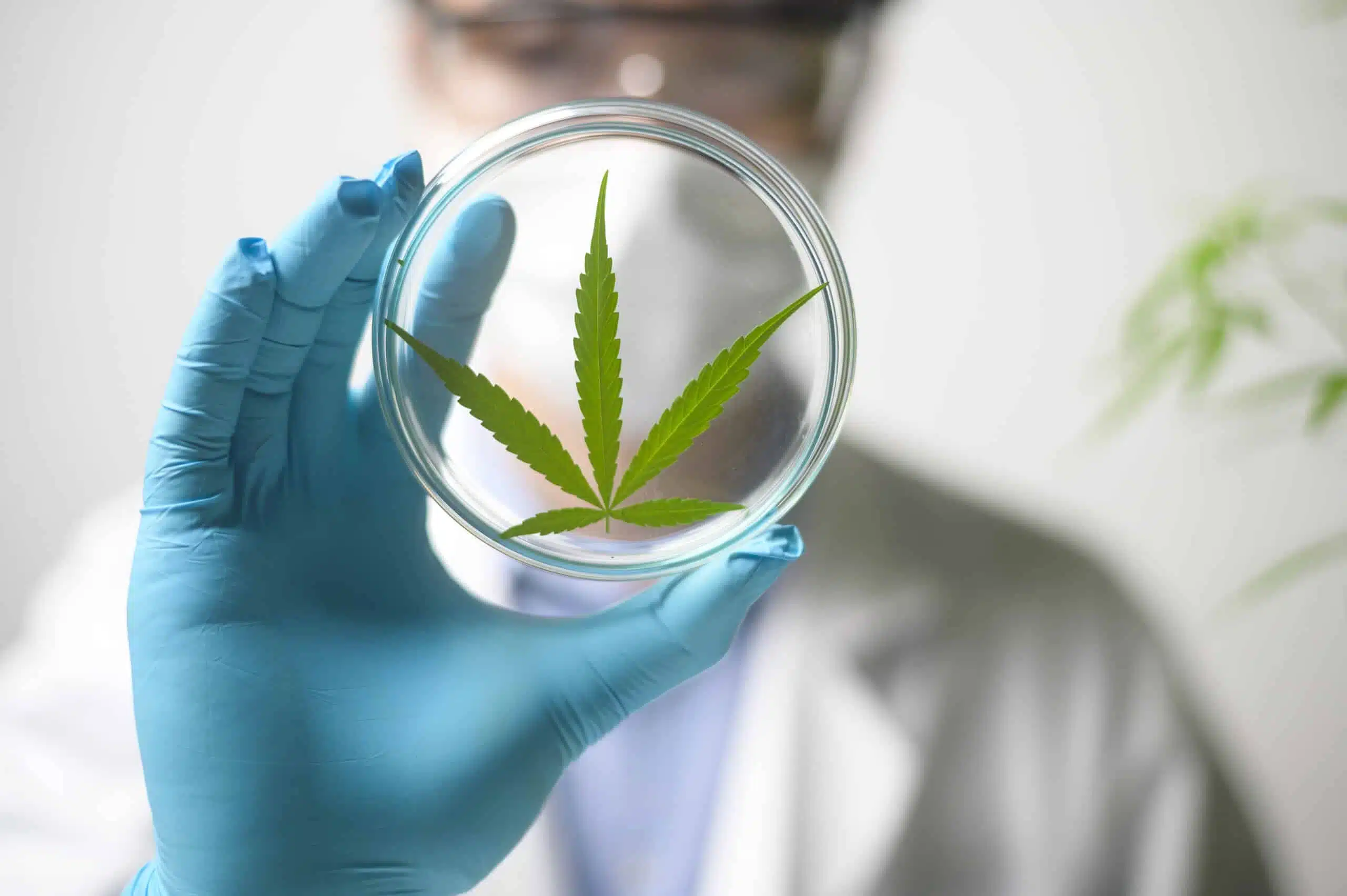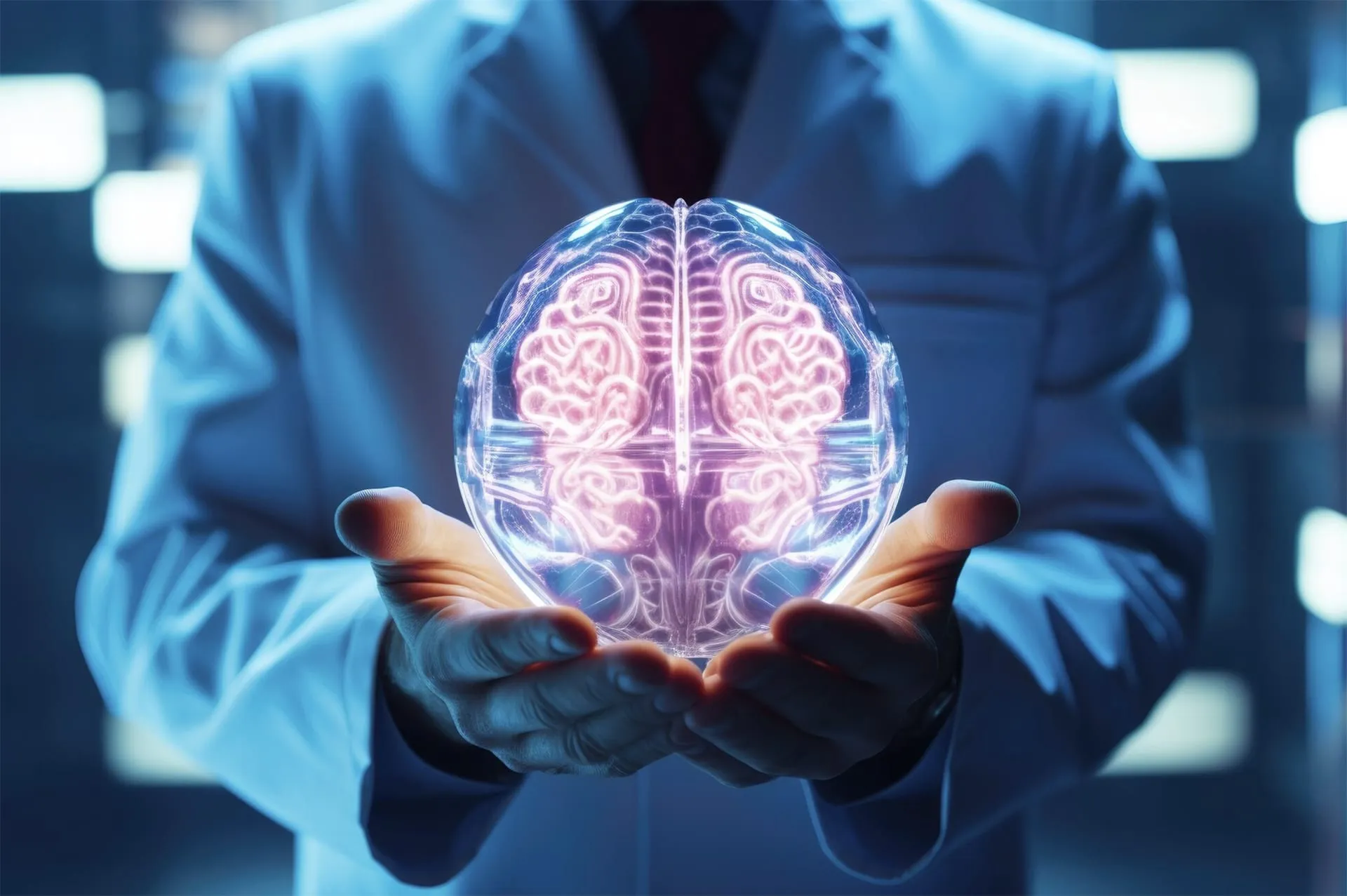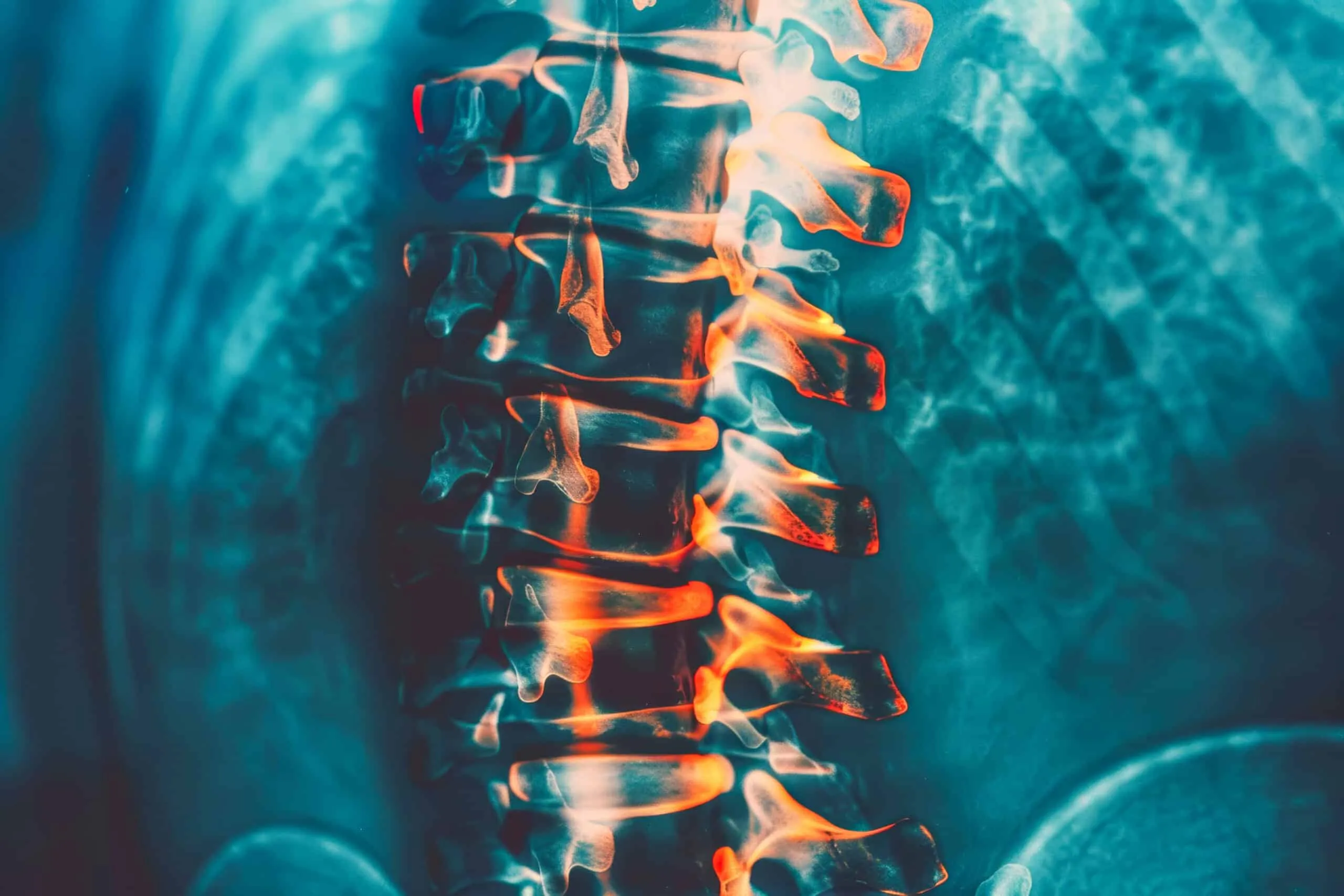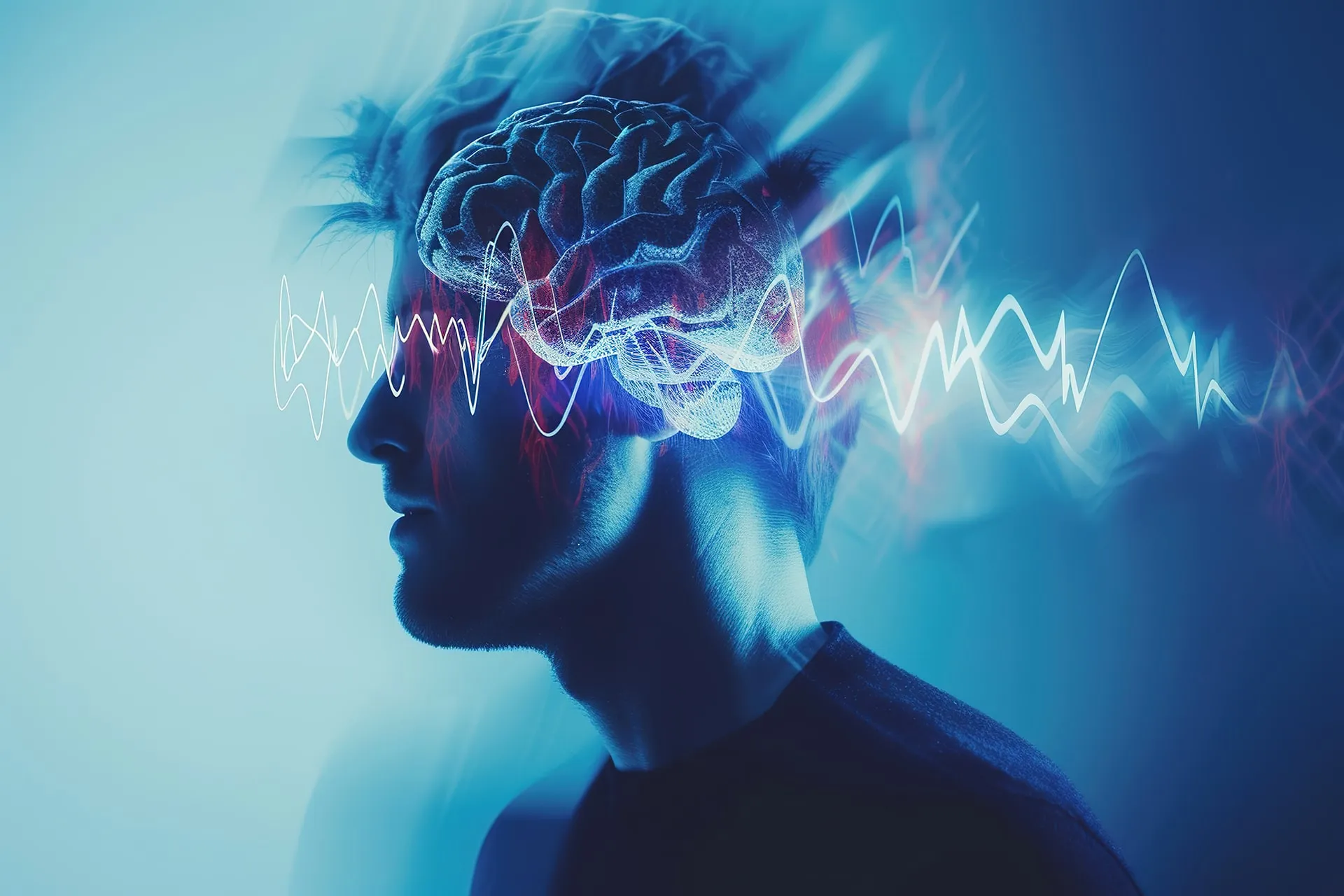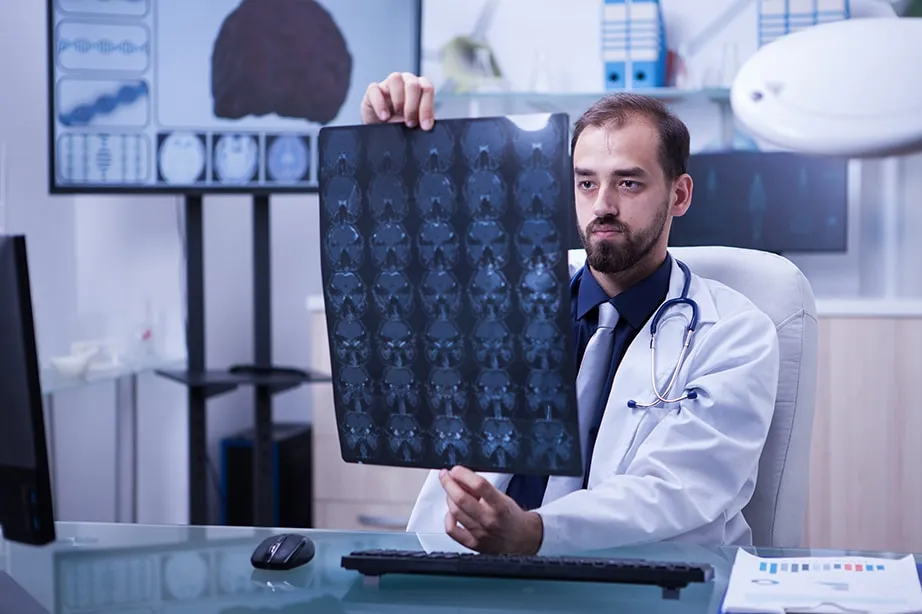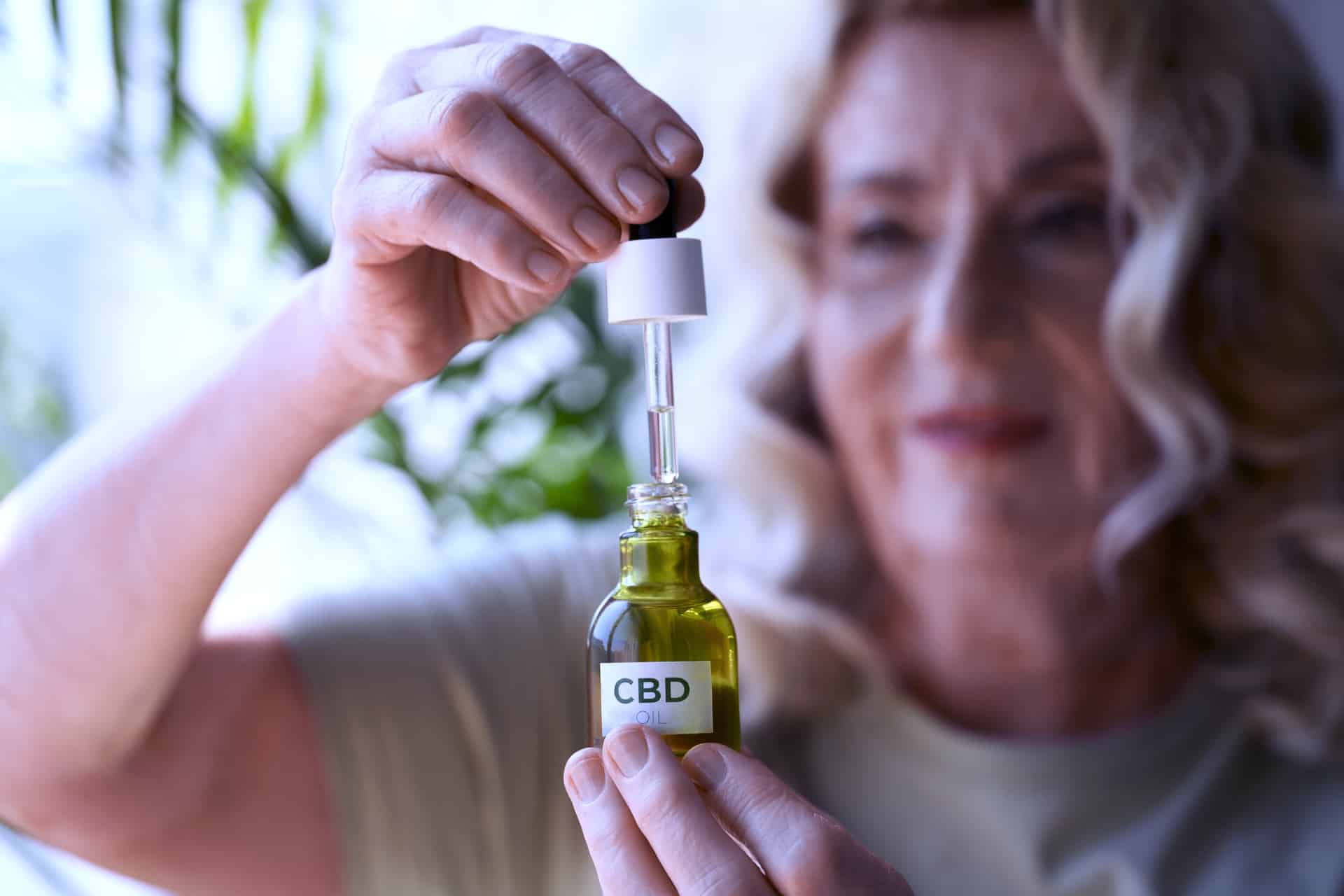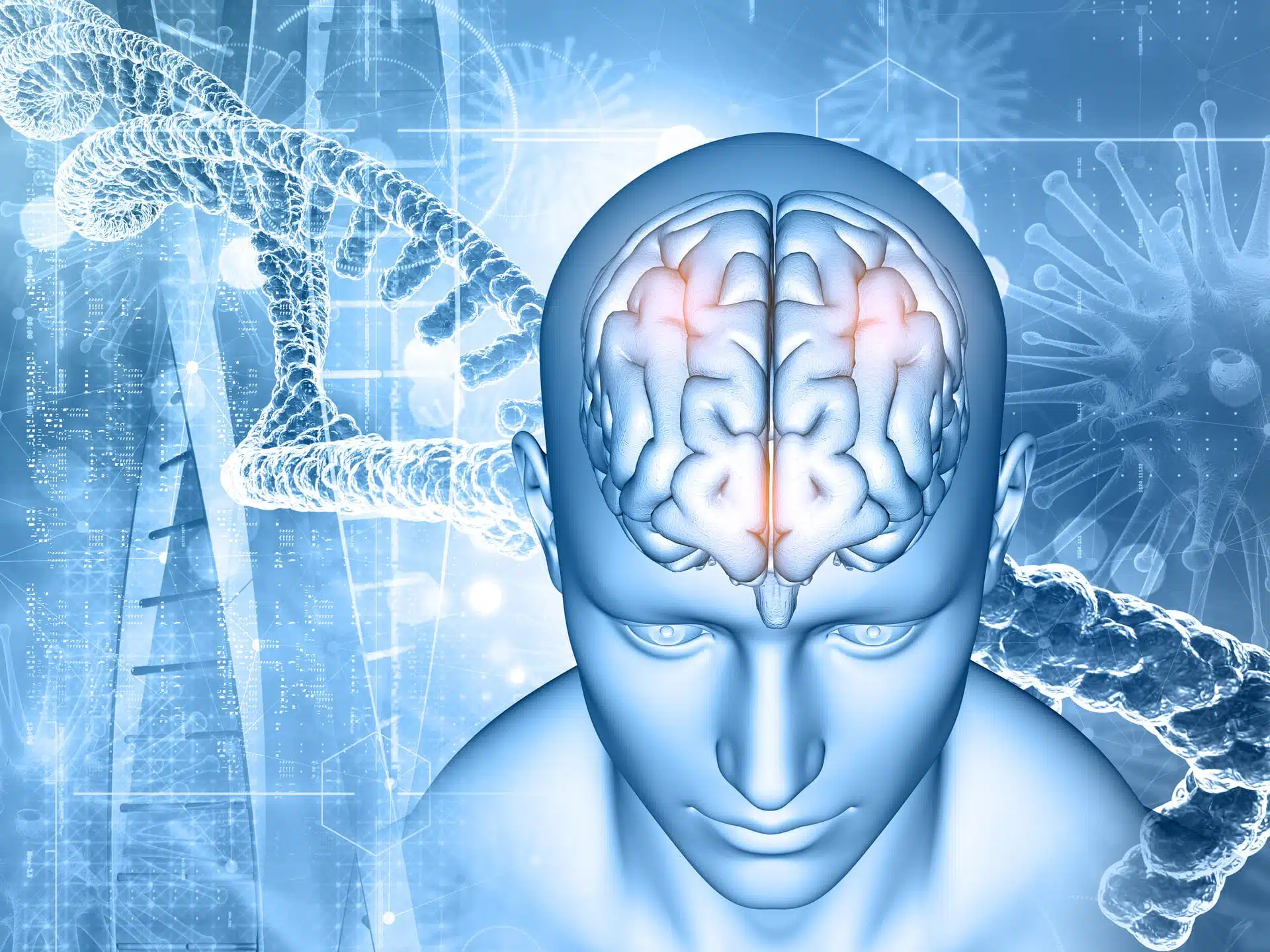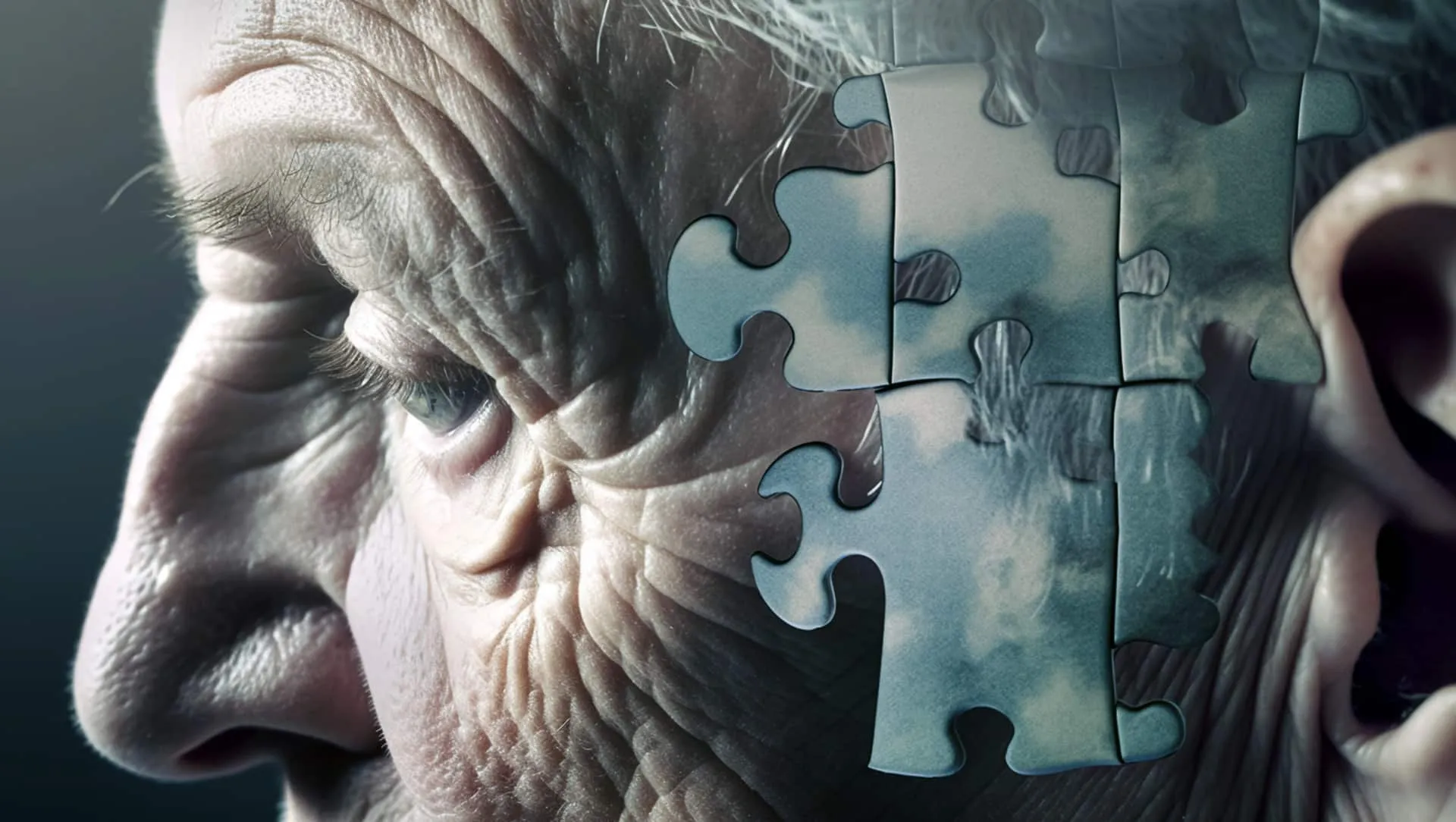Share
Multiple Sclerosis and Medical Cannabis

Multiple sclerosis (MS) is an autoimmune and neurologic disease affecting central nervous system (CNS) that results from an immune attack to the white matter of the CNS. The hallmark of MS is the demyelination lesions caused by the attack of macrophages and microglia to oligodendrocytes and myelin sheath. The loss of myelin (supportive layer of neurons) can cause neuronal degeneration. Typically, the onset of MS is between 20 and 40 years old ant it affects for females than males. MS is one the leading causes of disability of young adults.
MS is an heterogenous array of symptoms and signs because of the involvement of motor, sensory, visual and autonomic systems. MS patients experience a large set of symptoms including fatigue, bladder dysfunction, cognitive impairment, spasticity and pain.
There are 4 types of MS phenotypes: relapsing remitting MS (RRMS), primary progressive MS (PPMS), secondary progressive MS (SPMS), and progressive relapsing MS (PRMS).
RRMS represents 85% of the cases and is characterized by discrete lasting from days to weeks followed by substantial or fully recovery, but the recovery can become less evident with the persistence of the attack over time.
PPMS corresponds to about 15% of the total MS causes and is characterized by a lower frequency of attacks, but the motor disabilities can occur faster. The mean age of the onset of PPMS is 40 years, occurring later in life.
SPMS progresses from RRMS and is characterized by a constant deterioration in function and exhibits more severe and permanent symptoms. There is a 2% risk of transition from RRMS to SPMS each year. Thus, SPMS is another phase in the disease that occurs later in disease progression.
Multiple sclerosis and cannabis pharmacokinetics
A combination of Δ-9-tetrahydrocannabinol (THC) and cannabidiol (CBD), also known as nabiximols, administered via the oromucosal route using a pump spray, is approved in Canada for the treatment of neuropathic pain due to multiple sclerosis (MS). Additionally, nabiximols is approved in the US and several European countries for the treatment of spasticity in MS.
The route of administration of THC and CBD affects their absorption and bioavailability. For instance, the bioavailability of smoked THC varies between 2% and 56%, while its oral absorption is slow and unpredictable. Moreover, oral absorption is slower, and the bioavailability is lower, around 6%, compared to smoked THC. After the ingestion of 20 mg of THC, its maximum concentration in plasma ranges from 4.4 to 11.0 ng/mL. The main metabolites of THC are 11-hydroxy-tetrahydrocannabinol, which is active, and 11-nor-9-carboxy-tetrahydrocannabinol, which is inactive. The half-life of THC is about four days due to its slow release from lipid storage compartments and significant enterohepatic circulation. The main excretion pathways of THC are via feces and urine.
The metabolism of CBD is similar to THC metabolism, but CBD is completely excreted within 24 hours. The simultaneous administration of THC and CBD might influence their pharmacokinetics. Some reports suggest that the psychoactive effect of THC might be antagonized by CBD. However, the antagonistic effect of CBD on THC is dependent on the dose ratio and the timing of their administration.
Symptoms of multiple sclerosis that cannabis can help
Spasticity characterized by muscle rigidity is the most prevalent symptom in MS patients, affecting 60 to 84% of the patients. Therapies for spasticity can improve functional ability and relieve discomfort. There is a report demonstrating the effect of cannabinoids (2.7 mg of delta-9-tetrahydrocannabinol (THC) and 2.5 mg of cannabidiol (CBD) in a solution of 50:50 ethanol: propylene glycol) oromucosal spray administration on MS patients’ spasticity. In this study, the cannabinoids-treated group reported a reduction in spasticity and an increase in muscle and leg power. This is relevant since the currently available oral anti-spasticity medication causes an increase in weakness to improve the symptoms. https://onlinelibrary.wiley.com/doi/epdf/10.1111/j.1468-1331.2006.01639.x
Central pain occurs in around 50% of people with MS and is caused by a primary lesion or a dysfunction of the CNS. Administration of cannabinoids via oromucosal spray reduced the pain and the sleep disturbances (another symptom of MS). https://www.neurology.org/doi/abs/10.1212/01.wnl.0000176753.45410.8b
Oral administration of CBD in an MS mouse model reduced the expression of proinflammatory cytokines and regulated inflammatory macrophages. CBD at 20 mg/kg administered orally ameliorated the MS mouse model paralysis. This indicates that CBD is a potential therapeutic tool for MS. https://link.springer.com/article/10.1007/s11481-021-10023-6
One study reporting the effect of cannabis on the bladder demonstrated that MS patients who chose to consume cannabis products did not report bladder changes. However, patients who decided to take cannabis for bladder symptoms reported an improvement in the symptoms. https://www.sciencedirect.com/science/article/pii/S2211034821003722#sec0005
In 2021, a study was published reporting that patients taking cannabis are more satisfied with the treatment and possibly experience a reduction in depressive symptoms. However, they concluded that medical cannabis was not efficient in reducing the symptoms.
https://www.sciencedirect.com/science/article/pii/S1744388121001754#sec2
Evidences
https://onlinelibrary.wiley.com/doi/epdf/10.1111/j.1468-1331.2006.01639.x
https://www.neurology.org/doi/abs/10.1212/01.wnl.0000176753.45410.8b
https://link.springer.com/article/10.1007/s11481-021-10023-6
https://www.sciencedirect.com/science/article/pii/S2211034821003722#sec0005
https://www.sciencedirect.com/science/article/pii/S1744388121001754#sec2
| Study Title | Study URL | Study Status | Study Results | Conditions | Phases | Results |
| Neurophysiological Study of Sativex in Multiple Sclerosis (MS) Spasticity | https://clinicaltrials.gov/study/NCT01538225 | COMPLETED | NO | Multiple Sclerosis | PHASE3 | |
| Short-Term Effects of Medicinal Cannabis Therapy on Spasticity in Multiple Sclerosis | https://clinicaltrials.gov/study/NCT00248378 | COMPLETED | NO | Multiple Sclerosis | PHASE1|PHASE2 | |
| Use of Cannabinoids in Patients With Multiple Sclerosis | https://clinicaltrials.gov/study/NCT00202423 | UNKNOWN | NO | Multiple Sclerosis | PHASE2 | |
| A Study to Evaluate the Efficacy of Sativex in Relieving Symptoms of Spasticity Due to Multiple Sclerosis | https://clinicaltrials.gov/study/NCT01599234 | COMPLETED | YES | Multiple Sclerosis | PHASE3 | Spasticity, sleep and depression improvement of CBD vs placebo |
| Sativex Versus Placebo When Added to Existing Treatment for Central Neuropathic Pain in MS | https://clinicaltrials.gov/study/NCT00391079 | COMPLETED | YES | Multiple Sclerosis | PHASE3 | |
| Cannabis as a Complementary Treatment in Multiple Sclerosis | https://clinicaltrials.gov/study/NCT05092191 | RECRUITING | NO | Multiple Sclerosis | PHASE2 | |
| A Study of the Safety and Effectiveness of Sativex®, for the Relief of Symptoms of Spasticity in Subjects, From Phase B, With Multiple Sclerosis (MS) | https://clinicaltrials.gov/study/NCT00681538 | COMPLETED | YES | Spasticity|Multiple Sclerosis | PHASE3 | Cannabis did not perform better than placebo |
| Evaluate the Maintenance of Effect After Long-term Treatment With Sativex® in Subjects With Symptoms of Spasticity Due to Multiple Sclerosis | https://clinicaltrials.gov/study/NCT00702468 | COMPLETED | YES | Spasticity|Multiple Sclerosis | PHASE3 | Cannabis did not perform better than placebo |
| A Randomized Study of Sativex on Cognitive Function and Mood: Multiple Sclerosis Patients | https://clinicaltrials.gov/study/NCT01964547 | COMPLETED | YES | Multiple Sclerosis|Spasticity | PHASE4 | Cannabis did not perform better than placebo |
| A Study of Sativex® for Relief of Spasticity in Subjects With Multiple Sclerosis. | https://clinicaltrials.gov/study/NCT00711646 | COMPLETED | YES | Spasticity|Multiple Sclerosis | PHASE3 | Cannabis did not perform better than placebo |
| A Study of Sativex in the Treatment of Central Neuropathic Pain Due to Multiple Sclerosis | https://clinicaltrials.gov/study/NCT01604265 | COMPLETED | YES | Multiple Sclerosis|Neuropathic Pain | PHASE3 | Cannabis did not perform better than placebo |
| A Parallel Group Study to Compare Sativex® With Placebo in the Treatment of Detrusor Overactivity in Patients With Multiple Sclerosis | https://clinicaltrials.gov/study/NCT00678795 | COMPLETED | YES | Detrusor Overactivity|Multiple Sclerosis | PHASE3 | Cannabis did not perform better than placebo |
| An Investigation of Delta-9-tetrahydrocannabinol (THC) and Cannabidiol (CBD) in Multiple Sclerosis Patients | https://clinicaltrials.gov/study/NCT01610700 | COMPLETED | YES | Multiple Sclerosis | PHASE3 | Cannabis did not perform better than placebo |
| An Study to Investigate the Efficacy of Delta-9-tetrahydrocannabinol (THC) and Cannabidiol (CBD) in Multiple Sclerosis | https://clinicaltrials.gov/study/NCT01610713 | COMPLETED | YES | Multiple Sclerosis | PHASE3 | Cannabis did not perform better than placebo |
| An Observational Post-Marketing Safety Registry of Sativex® | https://clinicaltrials.gov/study/NCT02073474 | COMPLETED | NO | Multiple Sclerosis|Diabetes|Cancer|Neuropathic Pain | ||
| A Long-term Safety Extension Study of Delta-9-tetrahydrocannabinol (THC) and Cannabidiol (CBD) in Multiple Sclerosis | https://clinicaltrials.gov/study/NCT01610687 | COMPLETED | YES | Multiple Sclerosis|Spasticity | PHASE3 | Cannabis did not perform better than placebo |
| A Study to Evaluate the Effects of Cannabis Based Medicine in Patients With Pain of Neurological Origin | https://clinicaltrials.gov/study/NCT01606176 | COMPLETED | YES | Pain|Multiple Sclerosis | PHASE3 | Cannabis did not perform better than placebo |
| Cannabis (THC vs. CBD) in Multiple Sclerosis | https://clinicaltrials.gov/study/NCT06261489 | NOT_YET_RECRUITING | NO | Multiple Sclerosis | PHASE2 | |
| A Study of the Long-term Safety of Sativex Use | https://clinicaltrials.gov/study/NCT01606137 | COMPLETED | YES | Multiple Sclerosis|Spasticity|Pain | PHASE3 | Cannabis did not perform better than placebo |
| Effects of Vaporized Marijuana on Neuropathic Pain | https://clinicaltrials.gov/study/NCT01037088 | COMPLETED | YES | Neuropathic Pain|Reflex Sympathetic Dystrophy|Peripheral Neuropathy|Post-herpetic Neuralgia|Spinal Cord Injury|Multiple Sclerosis | PHASE1|PHASE2 | Cannabis did not perform better than placebo |
| Trial to Evaluate the Effect of Nabiximols Oromucosal Spray on Clinical Measures of Spasticity in Participants With Multiple Sclerosis | https://clinicaltrials.gov/study/NCT04657666 | COMPLETED | YES | Spasticity in Participants With Multiple Sclerosis | PHASE3 | |
| The Role of SAtivex® in Robotic-Rehabilitation | https://clinicaltrials.gov/study/NCT03186664 | COMPLETED | NO | Rehabilitation | NA | |
| A Teleheath tDCS Approach to Decrease Cannabis Use | https://clinicaltrials.gov/study/NCT05005013 | ACTIVE_NOT_RECRUITING | NO | Cannabis Use Disorder|Multiple Sclerosis | NA |
References
https://www.ncbi.nlm.nih.gov/pmc/articles/PMC10883637
https://www.thelancet.com/journals/laneur/article/PIIS1474-4422(21)00170-8/fulltext
https://www.sciencedirect.com/science/article/abs/pii/B9780444640765000466?via%3Dihub
https://www.tandfonline.com/doi/abs/10.1517/17425255.2013.795542
https://onlinelibrary.wiley.com/doi/epdf/10.1111/j.1468-1331.2006.01639.x
https://www.neurology.org/doi/abs/10.1212/01.wnl.0000176753.45410.8b
https://link.springer.com/article/10.1007/s11481-021-10023-6
https://www.sciencedirect.com/science/article/pii/S2211034821003722#sec0005
https://www.sciencedirect.com/science/article/pii/S1744388121001754#sec2
https://www.tandfonline.com/doi/abs/10.1517/17425255.2013.795542

